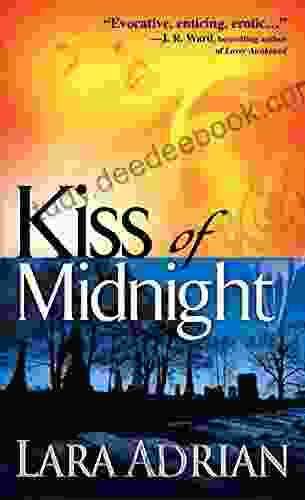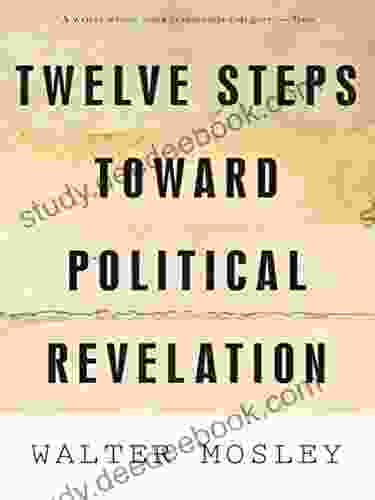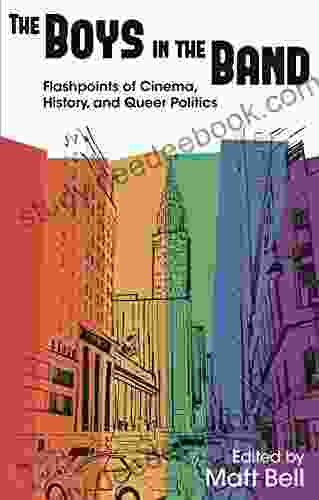Theory and Politics of Ambiguity: Deciphering the Ambiguities in Popular Music

5 out of 5
| Language | : | English |
| File size | : | 2061 KB |
| Text-to-Speech | : | Enabled |
| Screen Reader | : | Supported |
| Enhanced typesetting | : | Enabled |
| Word Wise | : | Enabled |
| Print length | : | 208 pages |
Music, an art form deeply embedded in human culture, has the power to transcend linguistic boundaries and resonate with individuals on an emotional level. Popular music, in particular, has emerged as a potent force, shaping cultural identities and mirroring the complexities of our social and political landscapes.
At the heart of popular music lies a fascinating phenomenon: ambiguity. Ambiguity refers to the presence of multiple, often contradictory meanings within a text or artwork. In music, ambiguity manifests in various forms, from enigmatic lyrics to ambiguous harmonies and musical structures.
This article delves into the theory and politics of ambiguity in popular music, exploring how ambiguity shapes the meaning of music, its reception by audiences, and its role in reflecting and shaping socio-political contexts.
Theories of Ambiguity in Music
Ambiguity in music has been the subject of extensive theoretical inquiry within musicology and cultural studies. Several prominent theories have emerged, offering frameworks for understanding the role and significance of ambiguity in musical expression:
- Indeterminacy Theory: Proposed by American composer John Cage, indeterminacy theory suggests that music should embrace ambiguity and embrace chance. According to this theory, the meaning of a musical work is not fixed but rather emerges through the interaction between the performer, the audience, and the environment.
- Polysemy Theory: This theory, rooted in literary analysis, posits that musical texts can have multiple, coexisting meanings. Polysemy in music allows for different interpretations by different listeners, creating a rich and multifaceted experience.
- Ambiguity as Resistance: Some scholars argue that ambiguity in music can be a form of resistance. By refusing to provide clear and unambiguous messages, music can challenge dominant ideologies and open up spaces for alternative readings and interpretations.
Ambiguity in Popular Music
In popular music, ambiguity manifests in a multitude of ways:
- Lyrical Ambiguity: Songwriters often employ ambiguous lyrics that can be interpreted in multiple ways. These lyrics allow listeners to project their own experiences and emotions onto the music, creating a more personal and meaningful connection.
- Musical Ambiguity: Ambiguity can also be found in musical elements such as harmony, melody, and rhythm. Unresolved chords, dissonant harmonies, and shifting tempos can create a sense of tension and uncertainty, inviting listeners to engage in active listening and interpretation.
- Genre Ambiguity: Popular music often defies genre boundaries, blending elements from different musical traditions. This genre ambiguity can create a sense of hybridity and fluidity, challenging traditional categories and expectations.
The Politics of Ambiguity
The ambiguity present in popular music is not merely a stylistic choice; it also carries significant political implications:
- Ambiguity as Social Commentary: Ambiguous lyrics and musical structures can be used to critique social and political issues without being explicitly confrontational. By avoiding direct statements, musicians can subtly convey their messages, reaching a wider audience.
- Ambiguity as Resistance to Censorship: In oppressive regimes, ambiguity can provide a means of expressing dissent while evading censorship. By using ambiguous language and symbolism, musicians can convey their messages without risking persecution.
- Ambiguity as a Reflection of Social Ambiguities: Popular music often mirrors the ambiguities and complexities of the social context in which it is created. By reflecting the uncertainties and contradictions of the time, music can contribute to a collective understanding of the human condition.
Case Studies in Ambiguity
To illustrate the diverse manifestations of ambiguity in popular music, let's consider a few notable examples:
- Bob Dylan's "Blowin' in the Wind": This iconic folk song features enigmatic lyrics that have been interpreted in countless ways, addressing themes of social injustice, civil rights, and the search for meaning.
- Radiohead's "Creep": Known for its dissonant harmonies and haunting melodies, this song explores themes of alienation, self-loathing, and the complexities of human relationships.
- Björk's "Hyperballad": This experimental electronic song blends traditional Icelandic folk melodies with modern beats, creating a sense of ambiguity and disorientation that reflects the song's themes of love, loss, and environmental destruction.
Ambiguity in popular music is a complex and multifaceted phenomenon that shapes the meaning, reception, and political impact of music. By embracing ambiguity, musicians can challenge traditional norms, provoke thought, and reflect the complexities of the human condition.
Further research in this area can deepen our understanding of the role of ambiguity in music, its cultural significance, and its potential for social and political transformation.
5 out of 5
| Language | : | English |
| File size | : | 2061 KB |
| Text-to-Speech | : | Enabled |
| Screen Reader | : | Supported |
| Enhanced typesetting | : | Enabled |
| Word Wise | : | Enabled |
| Print length | : | 208 pages |
Do you want to contribute by writing guest posts on this blog?
Please contact us and send us a resume of previous articles that you have written.
 Novel
Novel Page
Page Genre
Genre Reader
Reader Library
Library E-book
E-book Sentence
Sentence Shelf
Shelf Glossary
Glossary Preface
Preface Synopsis
Synopsis Annotation
Annotation Manuscript
Manuscript Scroll
Scroll Tome
Tome Bestseller
Bestseller Library card
Library card Autobiography
Autobiography Reference
Reference Encyclopedia
Encyclopedia Thesaurus
Thesaurus Narrator
Narrator Character
Character Resolution
Resolution Catalog
Catalog Borrowing
Borrowing Periodicals
Periodicals Study
Study Lending
Lending Reserve
Reserve Journals
Journals Rare Books
Rare Books Special Collections
Special Collections Interlibrary
Interlibrary Thesis
Thesis Dissertation
Dissertation Reading List
Reading List Book Club
Book Club Theory
Theory Textbooks
Textbooks Donna E Alvermann
Donna E Alvermann Carla Damron
Carla Damron Bookdrawer
Bookdrawer Andreas Wedel
Andreas Wedel Jacqueline Pearce
Jacqueline Pearce Charley Elbow
Charley Elbow Mark Weisenburger
Mark Weisenburger Bernard Brunstein
Bernard Brunstein Andreas Giger
Andreas Giger Tim Parsons
Tim Parsons John Wagner
John Wagner Julia Heaberlin
Julia Heaberlin Byron Barton
Byron Barton Lindsay Cummings
Lindsay Cummings Michael Chase
Michael Chase Gary M Klass
Gary M Klass Emily Fincher
Emily Fincher Christine Mccallan
Christine Mccallan Sarah Pickard
Sarah Pickard Mark Victor Hansen
Mark Victor Hansen
Light bulbAdvertise smarter! Our strategic ad space ensures maximum exposure. Reserve your spot today!

 Hunter MitchellBring Back Our Girls: A Movement to End Abduction and Violence Against Women...
Hunter MitchellBring Back Our Girls: A Movement to End Abduction and Violence Against Women... Harold BlairFollow ·6.1k
Harold BlairFollow ·6.1k Jacob HayesFollow ·19.6k
Jacob HayesFollow ·19.6k Todd TurnerFollow ·5.7k
Todd TurnerFollow ·5.7k Joseph ConradFollow ·4.5k
Joseph ConradFollow ·4.5k Graham BlairFollow ·6k
Graham BlairFollow ·6k Barry BryantFollow ·14.5k
Barry BryantFollow ·14.5k Patrick HayesFollow ·16.3k
Patrick HayesFollow ·16.3k Ralph EllisonFollow ·3.6k
Ralph EllisonFollow ·3.6k

 Dominic Simmons
Dominic SimmonsIcky Island: An Unforgettable Adventure for Kids!
Introducing Icky Island: A Delightful One...

 Carlos Fuentes
Carlos FuentesThe Midnight Breed: Embracing the Shadows and Unlocking a...
Welcome to the captivating world of...

 Ike Bell
Ike BellTwelve Steps Toward Political Revelation: A Path to...
Politics, often perceived as a complex and...

 Cameron Reed
Cameron ReedTravels in Arizona Goldfield: Unraveling the Threads of...
Nestled amidst the rugged...

 John Grisham
John GrishamFlashpoints of Cinema History and Queer Politics:...
The relationship between cinema history and...
5 out of 5
| Language | : | English |
| File size | : | 2061 KB |
| Text-to-Speech | : | Enabled |
| Screen Reader | : | Supported |
| Enhanced typesetting | : | Enabled |
| Word Wise | : | Enabled |
| Print length | : | 208 pages |












